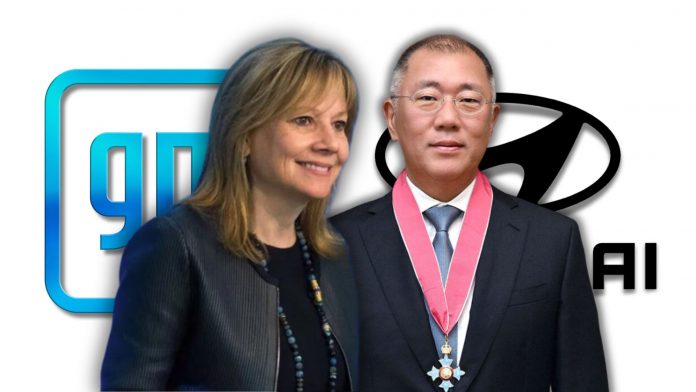General Motors (GM) and Hyundai Motor announced a strategic collaboration today, focusing on vehicle development, supply chain efficiency, and clean energy technologies. The automakers signed a non-binding memorandum of understanding (MoU) to explore joint efforts that could reduce costs and accelerate the delivery of new vehicles and technologies to customers. This partnership comes as both companies face mounting pressure to invest billions into electric vehicle (EV) production, battery supply chains, and advanced technologies like autonomous driving to meet global emissions regulations and stay competitive.
Potential areas of collaboration include the co-development and production of passenger and commercial vehicles, internal combustion engines (ICE), and clean energy solutions such as electric and hydrogen technologies. Both companies have ambitious plans to ramp up EV production, and this alliance aims to leverage their combined scale and expertise to drive down costs and enhance their market offerings.
In addition to vehicle development, GM and Hyundai plan to explore joint sourcing opportunities for key materials like raw battery materials and steel, critical to scaling their EV businesses. The companies will begin immediately assessing these opportunities and move towards formal agreements in the near future.
Hyundai Motor Group Executive Chair Euisun Chung and GM Chair and CEO Mary Barra signed the MoU. Barra emphasized that the collaboration could “unlock the scale and creativity” of both companies to bring more competitive vehicles to the market faster and more efficiently. Chung echoed these sentiments, stating that the partnership would enhance competitiveness in key markets and vehicle segments while driving cost efficiencies and offering better customer value.
This agreement follows GM’s recent partnership changes, including the cancellation of a joint effort with Honda in October 2023 to develop affordable EVs. As GM and Hyundai look to the future, the collaboration is poised to strengthen both automakers’ positions in the rapidly evolving global automotive landscape.




